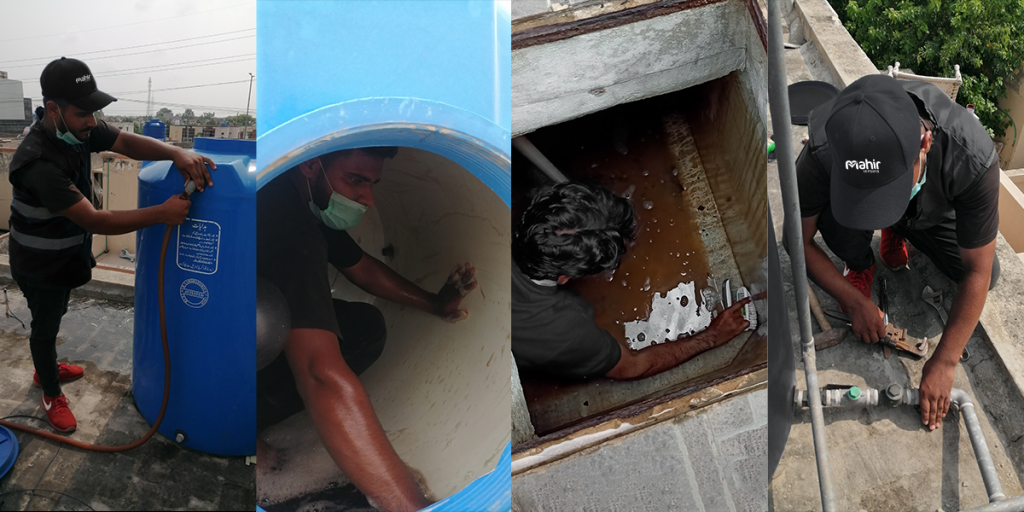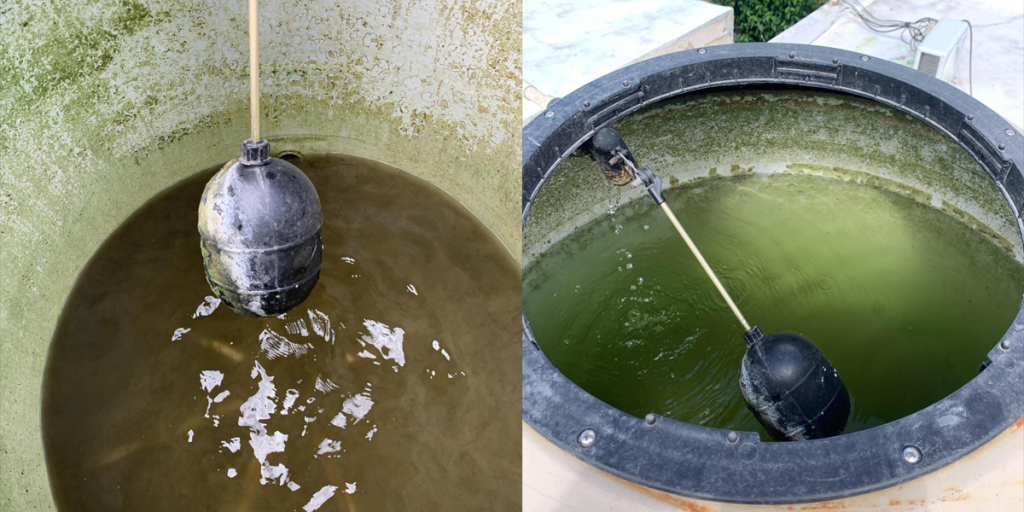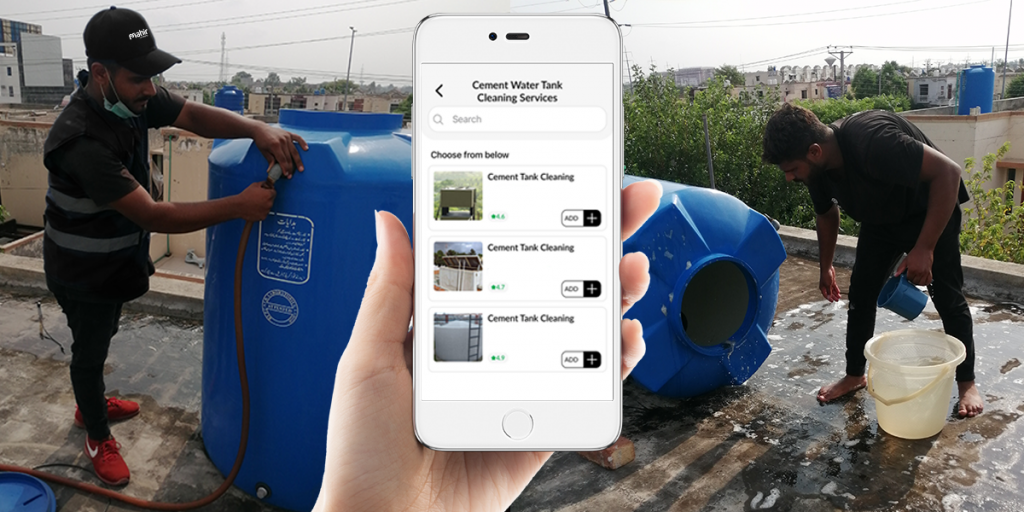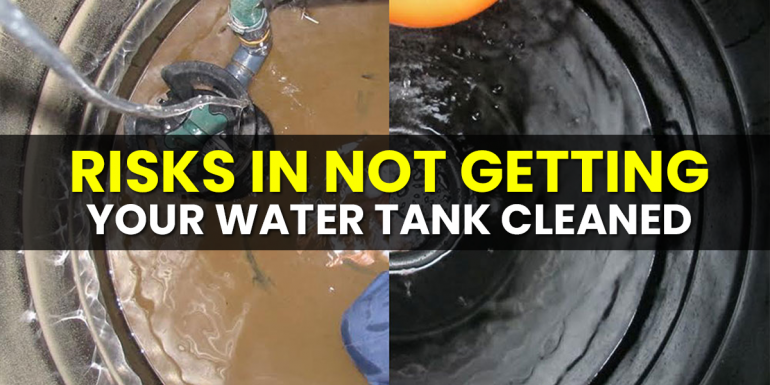Water tanks are essential for storing clean water for domestic and commercial use. However, neglecting regular cleaning and maintenance can pose significant risks to both human health and the integrity of the water tank itself.
In this comprehensive guide, we’ll explore the ten dangers of not getting your water tank cleaned, emphasizing the importance of professional water tank cleaning services to safeguard health and preserve infrastructure.
1. Contamination of Drinking Water

One of the most significant dangers of not cleaning your water tank is the contamination of drinking water.
Sediments, debris, and microbial growth can accumulate over time, leading to the presence of harmful bacteria, viruses, and other pathogens in the water. Consuming contaminated water can result in gastrointestinal illnesses, including diarrhea, vomiting, and stomach cramps.
2. Spread of Waterborne Diseases
Unclean water tanks provide a breeding ground for waterborne pathogens such as E. coli, Salmonella, and Legionella. These microorganisms can multiply rapidly in stagnant water and cause serious illnesses when ingested or inhaled.
Regular cleaning and disinfection of water tanks are essential to prevent the spread of waterborne diseases and protect public health.
3. Odor and Taste Issues

Accumulation of organic matter and microbial growth in water tanks can result in foul odors and unpleasant tastes in the water. This can make the water unpalatable and discourage individuals from drinking an adequate amount of water, leading to dehydration and other health issues.
4. Decreased Water Quality
Dirty water tanks can lead to a decrease in water quality, affecting not only drinking water but also water used for bathing, cooking, and cleaning. Poor water quality can impact hygiene standards and increase the risk of skin infections, respiratory problems, and other health concerns.
5. Corrosion and Rust
The presence of sediments and contaminants in water tanks can accelerate corrosion and rusting of the tank’s interior surface.
This can compromise the structural integrity of the tank, leading to leaks, cracks, and other damage over time. Regular cleaning and maintenance help prevent corrosion and prolong the lifespan of the water tank.
6. Clogging of Pipes and Fixtures
Sediments and debris that accumulate in water tanks can find their way into pipes and fixtures, leading to clogging and reduced water flow.
This can cause inconvenience and additional maintenance costs for homeowners and businesses, as well as potential damage to plumbing infrastructure.
7. Damage to Water Tank Components
Neglecting water tank cleaning can also result in damage to various components of the tank, such as valves, fittings, and seals.
Sediments and contaminants can cause wear and tear on these parts, leading to malfunctions, leaks, and costly repairs or replacements.
8. Algae Growth
Stagnant water in uncleaned tanks provides an ideal environment for algae growth. Algae can proliferate rapidly, forming unsightly green or brown layers on the tank’s interior surface.
Besides being aesthetically unappealing, algae can also harbor bacteria and other pathogens, further compromising water quality.
9. Mosquito Breeding
Water tanks that are not cleaned regularly can become breeding grounds for mosquitoes and other insects. Stagnant water provides a conducive environment for mosquito larvae to thrive, increasing the risk of mosquito-borne diseases such as dengue fever, malaria, and Zika virus.
10. Legal and Regulatory Non-Compliance
Failure to maintain clean water tanks may result in legal and regulatory non-compliance, especially for businesses and public facilities.
Health authorities and regulatory agencies impose strict standards for water quality and hygiene, and non-compliance can lead to fines, penalties, and reputational damage.
Key Takeaways
In conclusion, neglecting water tank cleaning poses numerous dangers to human health and infrastructure. From contamination of drinking water to damage to the water tank itself, the consequences of not maintaining clean water tanks can be severe.
To mitigate these risks, it’s essential to prioritize regular cleaning and maintenance of water tanks, whether at home or in commercial settings. Professional water tank cleaning services offer expertise, experience, and equipment to ensure thorough cleaning and disinfection, safeguarding health, and preserving infrastructure for the long term.

Don’t wait until it’s too late – invest in water tank cleaning services today and enjoy clean, safe water for years to come.







